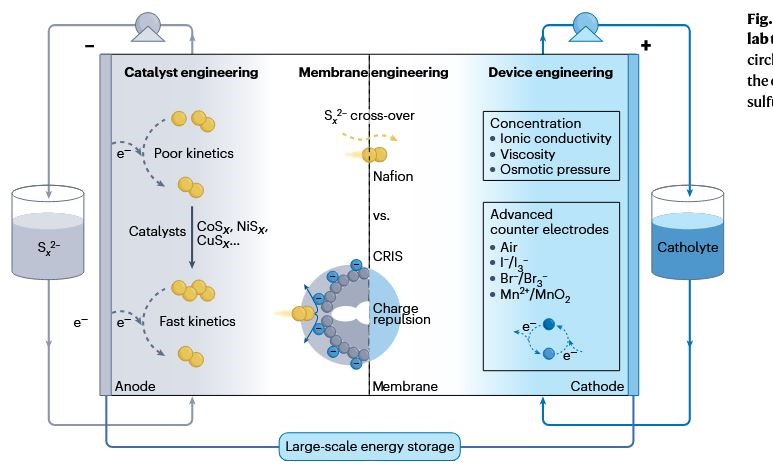From ESS News
Polysulfide is one of the most promising materials for electrolytes used in large-scale aqueous redox flow batteries (RFBs) due to its inherent safety, high energy and low cost. However, potential polysulfide crossover results in a poor battery lifecycle, which prevents sulfur-based flow batteries from getting closer to commercialization.
With this in mind, a group of researchers in China has outlined a new pathway for the industrialization of this energy storage technology, which promises a competitive levelized cost of storage for long-duration energy storage. “In our work, we proposed an integrated strategy targeting sulfur-based flow battery commercialization, focusing on catalyst design, ion-selective membranes, and device integration,” the research's corresponding author, Dongliang Chao, told pv magazine.
To continue reading, please visit our ESS News website.
This content is protected by copyright and may not be reused. If you want to cooperate with us and would like to reuse some of our content, please contact: editors@pv-magazine.com.




By submitting this form you agree to pv magazine using your data for the purposes of publishing your comment.
Your personal data will only be disclosed or otherwise transmitted to third parties for the purposes of spam filtering or if this is necessary for technical maintenance of the website. Any other transfer to third parties will not take place unless this is justified on the basis of applicable data protection regulations or if pv magazine is legally obliged to do so.
You may revoke this consent at any time with effect for the future, in which case your personal data will be deleted immediately. Otherwise, your data will be deleted if pv magazine has processed your request or the purpose of data storage is fulfilled.
Further information on data privacy can be found in our Data Protection Policy.